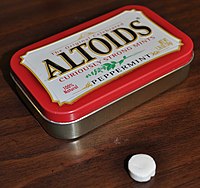BYTEmark* Native Mode Benchmark ver. 2 (10/95)
Index-split by Andrew D. Balsa (11/97)
Linux/Unix* port by Uwe F. Mayer (12/96,11/97)
TEST : Iterations/sec. : Old Index : New Index
: : Pentium 90* : AMD K6/233*
--------------------:------------------:-------------:------------
NUMERIC SORT : 268.96 : 6.90 : 2.27
STRING SORT : 39.577 : 17.68 : 2.74
BITFIELD : 8.6927e+07 : 14.91 : 3.11
FP EMULATION : 55.076 : 26.43 : 6.10
FOURIER : 2828.1 : 3.22 : 1.81
ASSIGNMENT : 3.1746 : 12.08 : 3.13
IDEA : 827.1 : 12.65 : 3.76
HUFFMAN : 507.81 : 14.08 : 4.50
NEURAL NET : 3.973 : 6.38 : 2.68
LU DECOMPOSITION : 92.28 : 4.78 : 3.45
==========================ORIGINAL BYTEMARK RESULTS==========================
INTEGER INDEX : 13.962
FLOATING-POINT INDEX: 4.613
Baseline (MSDOS*) : Pentium* 90, 256 KB L2-cache, Watcom* compiler 10.0
==============================LINUX DATA BELOW===============================
CPU :
L2 Cache :
OS : Linux 3.2.27+
C compiler : gcc-4.7
libc : libc-2.13.so
MEMORY INDEX : 2.989
INTEGER INDEX : 3.908
FLOATING-POINT INDEX: 2.558
Baseline (LINUX) : AMD K6/233*, 512 KB L2-cache, gcc 2.7.2.3, libc-5.4.38
* Trademarks are property of their respective holder.

